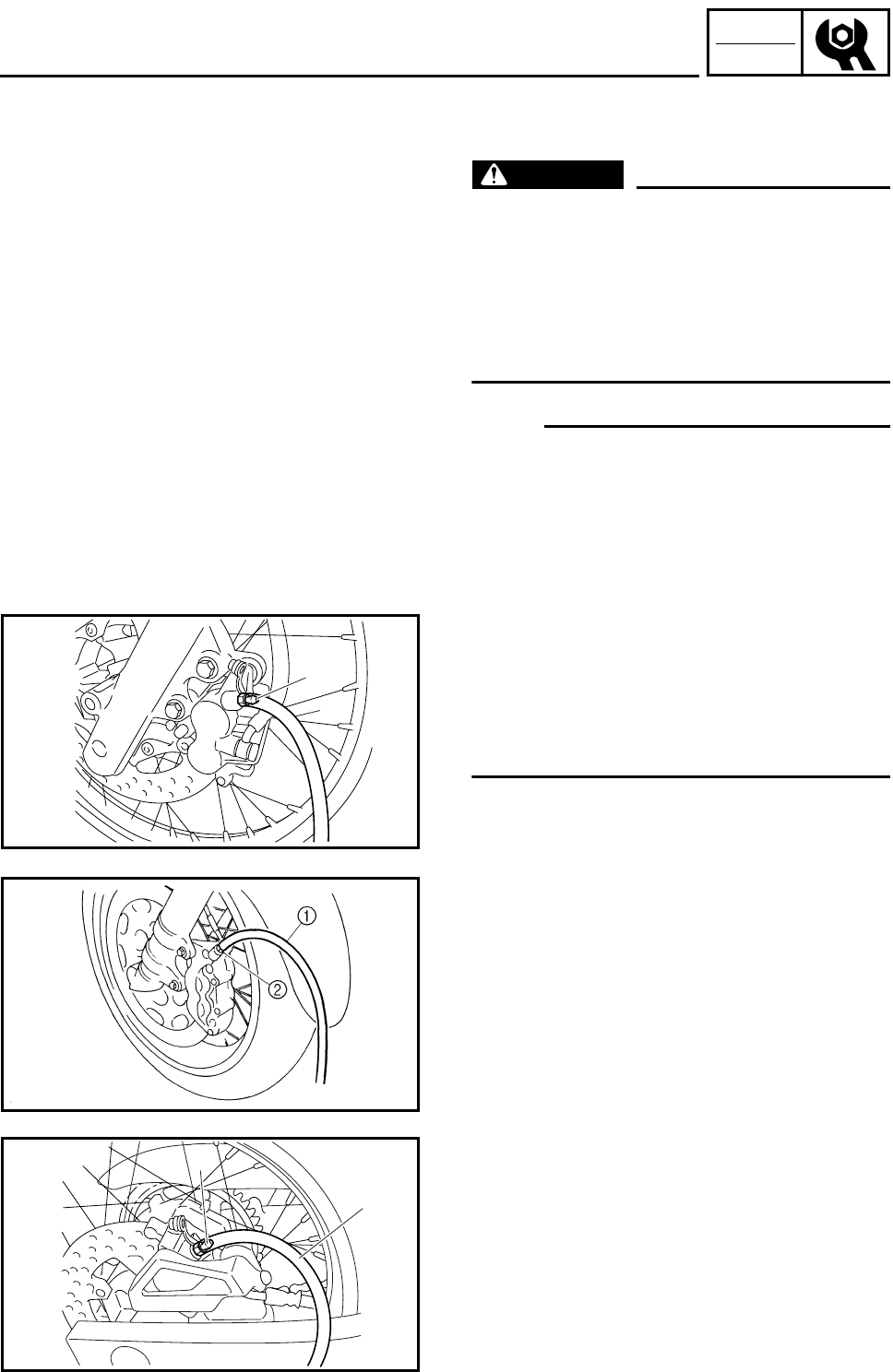
3 - 40
CHK
ADJ
BLEEDING THE HYDRAULIC BRAKE SYSTEM
EAS00134
BLEEDING THE HYDRAULIC BRAKE
SYSTEM
WARNING
_
Bleed the hydraulic brake system when-
ever:
• the system is disassembled.
• a brake hose is loosened, disconnected
or replaced.
• the brake fluid level is very low.
• brake operation is faulty.
NOTE:
_
• Be careful not to spill any brake fluid or allow
the brake master cylinder reservoir or brake
fluid reservoir to overflow.
• When bleeding the hydraulic brake system,
make sure there is always enough brake
fluid before applying the brake. Ignoring this
precaution could allow air to enter the
hydraulic brake system, considerably length-
ening the bleeding procedure.
• If bleeding is difficult, it may be necessary to
let the brake fluid settle for a few hours.
Repeat the bleeding procedure when the tiny
bubbles in the hose have disappeared.
1. Bleed:
• hydraulic brake system
▼▼▼▼ ▼ ▼▼▼▼ ▼ ▼▼▼▼ ▼ ▼▼▼▼ ▼ ▼▼▼▼ ▼ ▼▼▼▼ ▼▼▼
a. Fill the brake fluid reservoir to the proper
level with the recommended brake fluid.
b. Install the diaphragm (brake master cylinder
reservoir or brake fluid reservoir).
c. Connect a clear plastic hose
1
tightly to the
bleed screw
2
.
È
Front (XT660R)
É
Front (XT660X)
Ê
Rear (XT660R/XT660X)
d. Place the other end of the hose into a con-
tainer.
e. Slowly apply the brake several times.
f. Fully pull the brake lever or fully press down
the brake pedal and hold it in position.
2
1
È
É
1
2
Ê


















